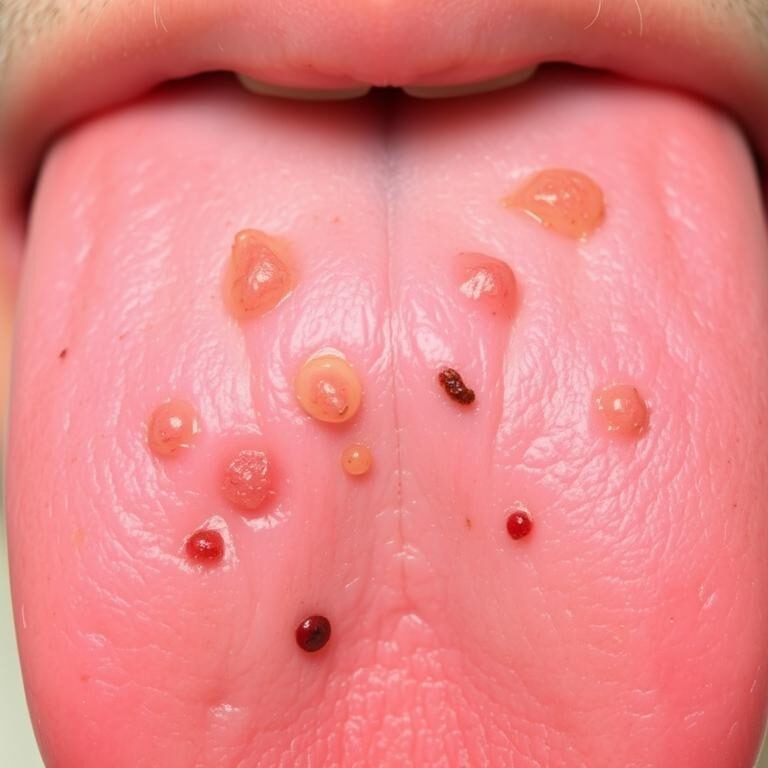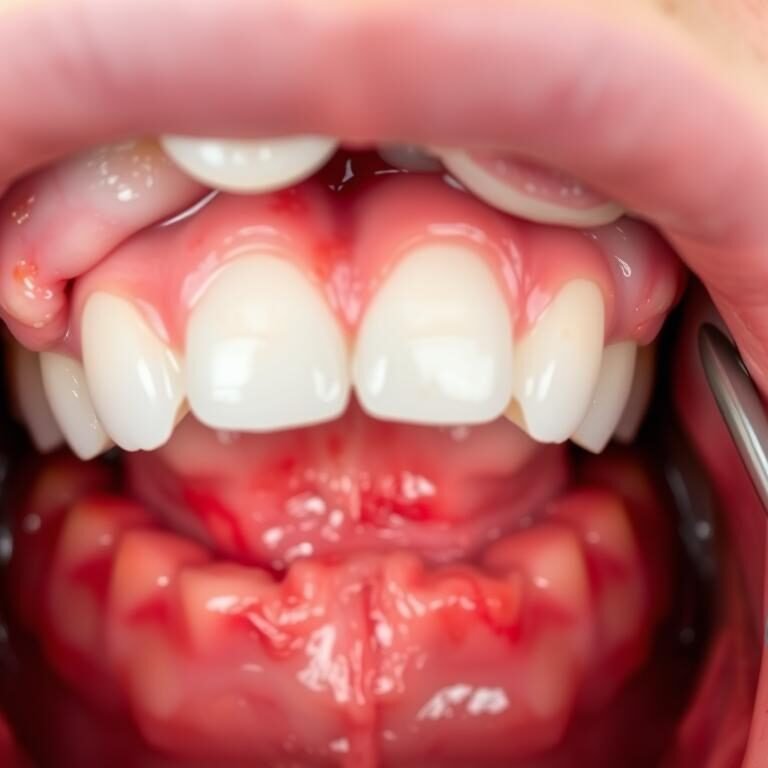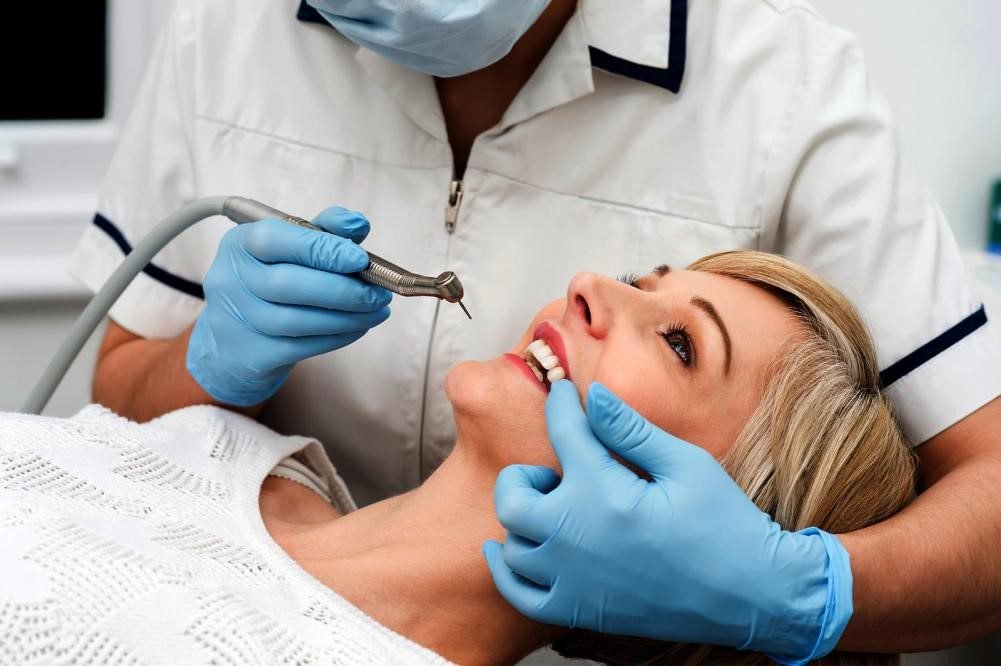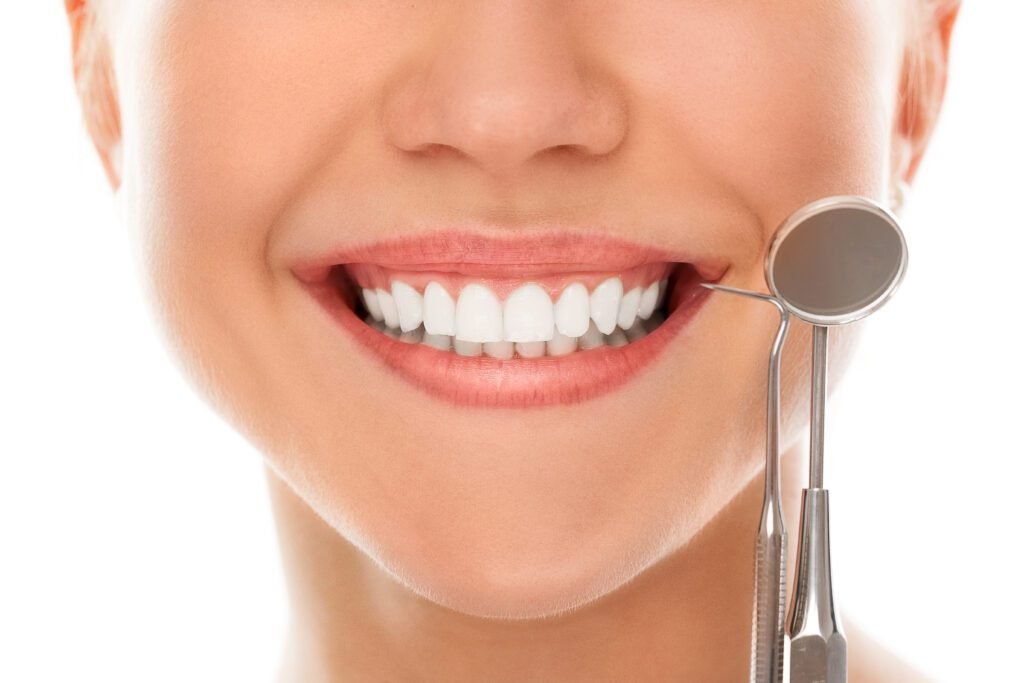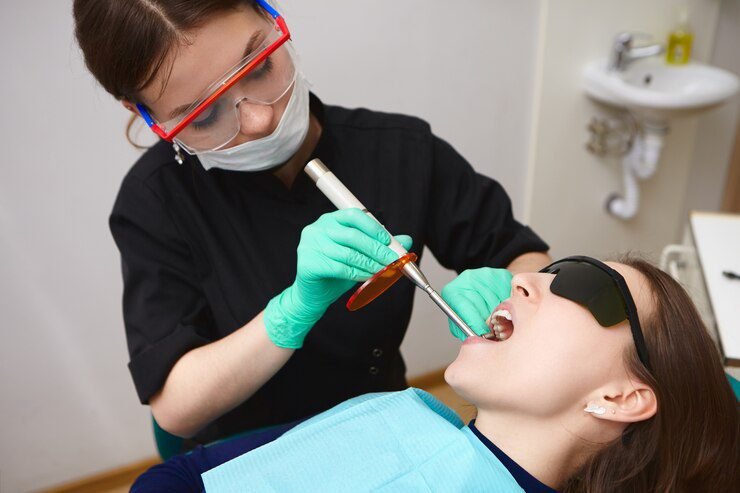Table of Contents
The Importance of Oral Health
Maintaining good oral health is crucial for overall well-being. Our mouths are teeming with bacteria, some of which are beneficial and help protect against harmful pathogens. However, without proper oral hygiene practices, these bacteria can become imbalanced, leading to various dental problems.
Oral health plays a significant role in preventing tooth decay, gum disease, and bad breath. Poor oral hygiene can lead to the accumulation of plaque, a sticky film of bacteria that forms on our teeth. Over time, plaque can harden into tartar, which cannot be removed by brushing alone. The bacteria in plaque and tartar release acids that attack tooth enamel, leading to cavities and tooth decay. Additionally, these harmful bacteria can cause inflammation and infection in the gums, leading to gum disease.

Regular brushing, flossing, and professional dental cleanings are essential for maintaining a healthy oral microbiome. By removing plaque and preventing the buildup of tartar, these practices help promote a balanced bacterial environment in the mouth. A balanced oral microbiome not only helps prevent dental problems but also contributes to overall well-being. Recent research has suggested that the oral microbiome may play a role in systemic diseases such as cardiovascular disease and diabetes.
In conclusion, understanding the importance of oral health is crucial for maintaining overall well-being. By adopting proper oral hygiene practices, we can foster a balanced oral microbiome and prevent dental problems.
Understanding the Oral Microbiome
The oral microbiome refers to the complex ecosystem of microorganisms that inhabit our mouths. While bacteria are often associated with negative connotations, it is important to understand that not all bacteria are harmful. In fact, the oral microbiome consists of a diverse array of bacteria, viruses, fungi, and other microorganisms that play significant roles in maintaining oral health.
Research has shown that a balanced and diverse oral microbiome is crucial for a healthy mouth. These microorganisms contribute to various functions, such as fighting off disease-causing bacteria, aiding in digestion, and even influencing our immune system. However, an imbalance in the oral microbiome can lead to oral health issues like dental decay and gum disease.
Understanding the oral microbiome is a vital step towards maintaining optimal oral health. By recognizing the complex interactions between different microorganisms in our mouths, dental professionals can develop strategies to promote a healthy oral microbiome and prevent oral diseases from occurring. Additionally, further research in this field can unveil exciting possibilities for personalized oral care in the future.
The Role of Bacteria in Oral Health
Bacteria, despite their negative connotation, play a crucial role in maintaining oral health. Our mouths are home to countless microorganisms, including bacteria, that make up what is known as the oral microbiome. These bacteria are not all harmful; in fact, many of them contribute to the overall health of our mouths.
One of the most important functions of oral bacteria is their role in digestion. Certain bacteria help break down food particles, aiding in the digestion process even before it reaches the stomach. Additionally, certain bacteria produce essential vitamins and nutrients, such as vitamin K and biotin, which our bodies need for optimal health. These bacteria also help keep harmful bacteria in check by competing for resources and limiting their growth.
Common Oral Microbes and Their Functions
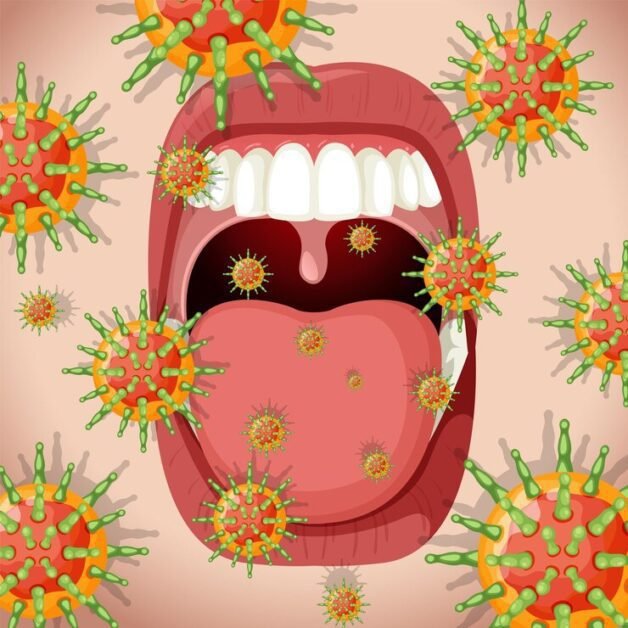
The oral cavity is home to a diverse and complex ecosystem of microorganisms, commonly referred to as the oral microbiome. These microbes play a crucial role in maintaining oral health by contributing to various physiological functions. Some of the most common oral microbes include Streptococcus mutans, Porphyromonas gingivalis, and Fusobacterium nucleatum.
Streptococcus mutans, a type of bacteria commonly found in dental plaque, is notorious for its role in dental decay. This bacterium produces acid as a byproduct of metabolizing carbohydrates, leading to the demineralization of tooth enamel. On the other hand, Porphyromonas gingivalis is associated with gum disease. It forms biofilms and releases enzymes that destroy connective tissues, leading to the inflammation and eventual destruction of the gums. Additionally, Fusobacterium nucleatum, although commonly found in the oral cavity, can also be associated with systemic infections such as periodontal disease and preterm birth.
Understanding the functions of these common oral microbes is crucial for maintaining a healthy oral microbiome. By promoting a balanced oral ecosystem, we can minimize the risks of dental decay and gum disease. Regular dental visits, proper oral hygiene practices, and a balanced diet can contribute to the overall well-being of our oral microbiome.
The Link Between Oral Health and Overall Well-being
A healthy mouth is not only crucial for a beautiful smile but also for overall well-being. Numerous studies have shown a direct link between oral health and various systemic diseases, including cardiovascular disease, diabetes, and respiratory infections. The mouth serves as a gateway to the body, and the bacteria present in the oral microbiome can have a significant impact on our health.
When the oral microbiome is in balance, it consists of a diverse community of bacteria that coexist harmoniously. However, poor oral hygiene practices and certain factors like diet, stress, and medications can disrupt this delicate balance, leading to an overgrowth of harmful bacteria. These bacteria can enter the bloodstream and travel to other parts of the body, contributing to the development of systemic diseases.
Research has shown that individuals with gum disease, for example, are at a higher risk of developing heart disease. The bacteria associated with gum disease can cause inflammation and damage to blood vessels, increasing the likelihood of heart conditions. Similarly, poor oral health has been linked to complications in diabetes management. The elevated blood sugar levels in diabetic individuals create an environment that is conducive for bacterial growth, leading to gum disease and other oral health issues.
Therefore, maintaining a healthy oral microbiome through regular brushing, flossing, and dental check-ups is crucial not just for a sparkling smile, but also for the overall well-being of an individual. By taking care of our oral health, we can reduce the risk of developing various systemic diseases and enhance our quality of life.
Factors Affecting the Oral Microbiome
Factors Affecting the Oral Microbiome
The oral microbiome, comprised of trillions of microorganisms, plays a crucial role in maintaining oral health. However, various factors can disrupt the delicate balance of the oral microbiome and contribute to the development of dental diseases. One significant factor is poor oral hygiene practices. Inadequate brushing and flossing can allow harmful bacteria to thrive, leading to the formation of plaque and tartar. Additionally, certain medications, such as antibiotics, can disrupt the oral microbiome by killing both harmful and beneficial bacteria. Moreover, a diet high in sugar and carbohydrates can contribute to an unhealthy microbial environment, as these substances serve as a source of nutrition for bacteria that cause tooth decay.
| Factors affecting the oral microbiome | How to protect them |
|---|---|
| Diet | Consume a balanced diet rich in fruits, vegetables, and whole grains. Limit sugary and acidic foods and beverages. |
| Oral hygiene practices | Brush teeth twice a day with fluoride toothpaste, floss daily, and use mouthwash. Visit the dentist regularly for cleanings and check-ups. |
| Smoking and tobacco use | Quit smoking and avoid tobacco products to reduce harmful effects on the oral microbiome. |
| Medications | Be aware of any medications that may affect oral health and discuss potential side effects with healthcare providers. |
| Stress | Practice stress management techniques such as meditation, exercise, and deep breathing exercises to reduce stress levels. |
| Age | Maintain good oral hygiene habits throughout life and seek appropriate dental care as needed, especially as one ages. |
| Genetics | While genetics play a role, maintaining good oral hygiene and healthy habits can help mitigate genetic predispositions to oral health issues. |
| Systemic diseases | Manage underlying health conditions effectively to minimize their impact on the oral microbiome. |
| Environmental factors | Minimize exposure to environmental pollutants and toxins that can affect oral health. |
| Hormonal changes (e.g., pregnancy) | Practice good oral hygiene and seek dental care during hormonal changes to mitigate potential oral health issues. |
The Oral Microbiome and Dental Decay

Dental decay, also known as dental caries or cavities, is a prevalent oral health issue affecting people of all ages. It occurs when the natural structure of the tooth is gradually eroded by acid-producing bacteria present in the oral microbiome. These bacteria, primarily Streptococcus mutans, feed on sugars and starches in the foods we consume, producing acids that attack the tooth enamel. Over time, this can lead to tooth decay, causing pain, sensitivity, and even tooth loss if left untreated.
Maintaining a healthy oral microbiome is crucial in preventing dental decay. Brushing and flossing daily helps remove the plaque and food debris that bacteria thrive on, reducing their harmful effects on tooth enamel. Additionally, regular dental check-ups and cleanings allow professionals to identify and address any early signs of decay before they progress. A well-balanced diet that limits sugary and acidic foods and beverages can also contribute to a healthier oral microbiome. By taking these preventive measures and prioritizing oral hygiene, individuals can significantly reduce the risk of dental decay and maintain optimal dental health.
Oral Microbiome and Gum Disease
Gum disease, also known as periodontal disease, is a common oral health condition that affects the supporting structures of the teeth, including the gums, ligaments, and bone. It is a result of an imbalance in the oral microbiome and can lead to various complications if left untreated.
The oral microbiome plays a crucial role in the development of gum disease. When the balance of bacteria in the mouth is disrupted, harmful bacteria flourish, leading to inflammation and infection of the gum tissue. Specifically, a bacterium called Porphyromonas gingivalis has been identified as a key player in the progression of gum disease. It produces toxins that break down the gum tissue and destroy the supportive structures around the teeth. Additionally, other bacteria such as Fusobacterium nucleatum and Treponema denticola have also been associated with the development of gum disease.
Maintaining a healthy oral microbiome is essential for preventing gum disease. Regular brushing and flossing help to remove plaque, the sticky film that harbors bacteria, from the teeth and gums. Additionally, visiting your dentist regularly for professional cleanings and check-ups can help identify and address any early signs of gum disease. Adopting a balanced diet low in sugar and high in fruits and vegetables can also promote a healthy oral microbiome and reduce the risk of gum disease.
In conclusion, the oral microbiome has a significant impact on gum health. Understanding the role of bacteria in gum disease and taking proactive steps to maintain a healthy oral microbiome are essential for preventing this common oral health condition. By prioritizing oral hygiene practices and seeking professional dental care, individuals can reduce their risk of developing gum disease and maintain optimal oral health.
The Impact of Diet on the Oral Microbiome
The Impact of Diet on the Oral Microbiome
When it comes to maintaining good oral health, the old adage “you are what you eat” holds true. Diet plays a crucial role in shaping the composition and diversity of the oral microbiome, which refers to the community of microorganisms that inhabit our mouths. A balanced and nutritious diet can promote the growth of beneficial bacteria, while a poor diet can result in an imbalance that contributes to oral health issues.
Research has shown that diets high in sugars and refined carbohydrates can negatively impact the oral microbiome. These types of foods provide an ideal environment for harmful bacteria to thrive, leading to an increased risk of dental decay and gum disease. On the other hand, a diet rich in fruits, vegetables, lean proteins, and whole grains can support a healthy oral microbiome, as these foods provide essential nutrients that promote the growth of beneficial bacteria.
Additionally, the frequency and timing of meals also play a role in the impact of diet on the oral microbiome. Frequent snacking and consuming sugary or acidic foods and drinks throughout the day can create an environment that is conducive to bacterial growth and acid production. This can lead to the erosion of tooth enamel and an increased risk of dental decay. On the contrary, spacing out meals and snacks and practicing good oral hygiene habits, such as brushing and flossing regularly, can help maintain a balanced oral microbiome and reduce the risk of oral health issues.
In conclusion, the impact of diet on the oral microbiome should not be underestimated. A healthy and well-balanced diet is essential for promoting a diverse and beneficial oral microbiome, which is key to maintaining optimal oral health. By making conscious choices about the foods we eat and adopting good oral hygiene practices, we can support a healthy oral microbiome and reduce the risk of dental problems.
How Oral Hygiene Practices Influence the Microbiome
Maintaining good oral hygiene practices is vital for a healthy microbiome in the mouth. The microbiome refers to the community of bacteria and other microorganisms that reside in our bodies, and the oral microbiome is specifically the collection of microorganisms living in our mouths. Good oral hygiene practices, such as regular brushing and flossing, play a crucial role in influencing the balance and diversity of the oral microbiome.
When we neglect our oral hygiene, harmful bacteria can proliferate in our mouths, leading to various oral health issues. Brushing and flossing effectively remove plaque, which is a sticky film containing harmful bacteria that can cause tooth decay and gum disease. By removing this plaque, we create an environment that is less conducive for the growth of harmful bacteria, thereby promoting a healthier oral microbiome.
Moreover, oral hygiene practices can also impact the production of saliva, which plays a vital role in maintaining a balanced oral microbiome. Regular brushing and flossing stimulate saliva flow, which helps to flush away food particles and neutralize harmful acids produced by bacteria. This, in turn, helps to create an environment that supports the growth of beneficial bacteria and reduces the risk of oral health problems.
In conclusion, practicing good oral hygiene is essential for maintaining a healthy oral microbiome. Regular brushing and flossing not only remove harmful bacteria and plaque but also promote the growth of beneficial microorganisms. By incorporating proper oral hygiene practices into our daily routine, we can significantly influence the balance and diversity of our oral microbiome, ultimately contributing to better oral health.
The Oral Microbiome and Bad Breath
Bad breath, medically known as halitosis, can be an embarrassing and socially distressing condition. While various factors can contribute to bad breath, the oral microbiome plays a crucial role in its development. The oral microbiome refers to the complex community of microorganisms, including bacteria and fungi, that reside in the mouth. These microorganisms naturally produce volatile sulfur compounds (VSCs), such as hydrogen sulfide and methyl mercaptan, which are often responsible for the unpleasant odor associated with bad breath.
| Oral Microbiome | Treatment for Bad Breath |
|---|---|
| Maintaining Oral Hygiene | – Brush teeth twice a day |
| – Floss daily | |
| – Use antibacterial mouthwash | |
| Dietary Adjustments | – Limit sugary and acidic foods |
| – Increase intake of water | |
| – Chew sugar-free gum or mints | |
| Regular Dental Check-ups | – Visit the dentist every 6 months |
| – Professional cleanings and check-ups | |
| Tongue Cleaning | – Use a tongue scraper to remove bacteria |
| Addressing Underlying Issues | – Treat gum disease or tooth decay |
| – Address dry mouth issues | |
| Consulting a Professional | – Seek advice from a dentist or healthcare professional for persistent bad breath issues |
Imbalances in the oral microbiome can lead to an overgrowth of certain bacteria that produce excessive amounts of VSCs, contributing to halitosis. Poor oral hygiene practices, such as infrequent brushing and flossing, can allow bacteria to accumulate on the teeth and gums, leading to plaque buildup and tooth decay. Additionally, food particles trapped between teeth and in pockets around the gums can serve as a food source for bacteria, causing them to produce more VSCs. It is important to understand the role of the oral microbiome in bad breath so that appropriate preventive and treatment measures can be implemented.
The Oral Microbiome and Systemic Diseases
Scientific research in recent years has shed light on the intriguing connection between the oral microbiome and systemic diseases. The oral microbiome refers to the diverse community of microbes that reside in our mouth, including bacteria, viruses, and fungi. These microorganisms play a crucial role in maintaining oral health, but they can also impact our overall well-being.
Several studies have highlighted the association between oral microbiome imbalance and certain systemic diseases, such as cardiovascular disease, diabetes, and respiratory infections. It appears that the same harmful bacteria that contribute to gum disease and tooth decay can also enter the bloodstream and travel to other parts of the body, triggering inflammation and potentially leading to serious health consequences.
For example, researchers have found links between periodontal disease, a severe form of gum disease, and an increased risk of developing conditions like heart disease and stroke. Furthermore, oral pathogens have been detected in the lungs of individuals with respiratory illnesses, suggesting a potential connection between oral health and respiratory infections. While more research is needed to fully understand these associations, it is crucial to recognize that maintaining a healthy oral microbiome is not only essential for good oral health but also for promoting overall systemic well-being.
Note: This response does not include a conclusion as per the instruction given.
Emerging Research on the Oral Microbiome
Emerging research on the oral microbiome is shedding light on the intricate relationship between our oral health and overall well-being. Scientists and dental experts have been delving into the fascinating world of oral microbes, uncovering their roles, functions, and impact on various dental and systemic diseases.
Recent studies have shown that the oral microbiome plays a crucial role in dental decay and gum disease, two common oral health concerns. Certain bacteria in the oral cavity have been identified as significant contributors to the development of these conditions, while others have been found to have a protective effect. Understanding the complex interactions between these microbes and our oral health can potentially lead to targeted interventions and novel treatment approaches.
Furthermore, emerging research suggests that the oral microbiome may have far-reaching effects beyond the mouth. Scientists have discovered links between the composition of the oral microbiome and systemic diseases such as diabetes, cardiovascular disease, and even Alzheimer’s disease. These findings highlight the interconnectedness of our oral and overall health and emphasize the importance of maintaining a healthy oral microbiome.
As research in this field continues to expand, a deeper understanding of the oral microbiome promises to revolutionize dental care and preventive strategies. By harnessing this knowledge, dental professionals can develop personalized interventions tailored to an individual’s unique oral microbiome, ultimately improving oral health outcomes and overall well-being.
Maintaining a Healthy Oral Microbiome
The oral microbiome is a complex ecosystem that plays a crucial role in maintaining oral health. Here are some tips to help you maintain a healthy oral microbiome:
1. Practice good oral hygiene: Brushing your teeth twice a day and flossing daily are essential for removing plaque and bacteria from your mouth. Use a fluoride toothpaste and a soft-bristled toothbrush to ensure effective cleaning without damaging your gums.
2. Limit sugary and acidic foods: Consuming excessive amounts of sugar and acidic foods can create an ideal environment for harmful bacteria to thrive in your mouth. Opt for a balanced diet that includes plenty of fruits, vegetables, and whole grains to support a healthy oral microbiome.
Remember, maintaining a healthy oral microbiome is crucial for overall oral health and well-being. By following these tips, you can promote a balanced microbial community in your mouth and reduce the risk of dental problems. Stay tuned for more information on this fascinating topic.
Tips for Improving Oral Health and Microbiome Balance
Maintaining good oral health is crucial for overall well-being, as it not only ensures strong teeth and fresh breath but also contributes to a healthy oral microbiome. The oral microbiome is a diverse community of microorganisms that naturally inhabit our mouths, and its balance is essential for oral health. Here are some tips to help improve your oral health and maintain a healthy oral microbiome.
Firstly, practicing proper oral hygiene is key. Brush your teeth at least twice a day using fluoride toothpaste and a soft-bristled toothbrush. Don’t forget to clean your tongue as well, as it can harbor bacteria and contribute to bad breath. Incorporating flossing into your daily routine is also important, as it helps remove plaque and food particles from between your teeth and along the gumline. Additionally, consider using an antimicrobial mouthwash to help reduce the number of harmful bacteria in your mouth.
Secondly, be mindful of your diet. Limit your intake of sugary and acidic foods and beverages, as they can contribute to dental decay and disrupt the balance of the oral microbiome. Instead, opt for a balanced diet rich in fruits, vegetables, whole grains, and lean proteins. These nutrient-rich foods help support a healthy oral microbiome and provide essential vitamins and minerals for strong teeth and gums.
By following these tips, you can improve your oral health and maintain a balanced oral microbiome. Remember, regular visits to your dentist for professional cleanings and check-ups are also crucial for ensuring optimal oral health. Taking care of your mouth is an investment in your overall well-being, so prioritize oral hygiene and maintain a healthy lifestyle for a happy and healthy smile.
What is the oral microbiome?
The oral microbiome refers to the collection of microorganisms, including bacteria, viruses, and fungi, that reside in the mouth.
How does the oral microbiome affect oral health?
The oral microbiome plays a crucial role in maintaining oral health by helping to break down food particles, protecting against harmful bacteria, and maintaining a balanced pH level in the mouth.
Can the oral microbiome impact overall well-being?
Yes, research suggests that imbalances in the oral microbiome can contribute to various systemic diseases, including cardiovascular disease, diabetes, and respiratory infections.
What factors can affect the balance of the oral microbiome?
Several factors can disrupt the balance of the oral microbiome, including poor oral hygiene, a high-sugar diet, smoking, stress, and certain medications.
How does the oral microbiome contribute to dental decay?
When harmful bacteria in the oral microbiome feed on sugars from the diet, they produce acids that erode tooth enamel, leading to dental decay.
Is there a connection between the oral microbiome and gum disease?
Yes, an imbalance in the oral microbiome can lead to an overgrowth of harmful bacteria, causing inflammation and gum disease.
How does diet affect the oral microbiome?
A diet high in sugars and processed foods can promote the growth of harmful bacteria in the oral microbiome, increasing the risk of dental decay and gum disease.
Can oral hygiene practices influence the oral microbiome?
Yes, maintaining proper oral hygiene practices, such as regular brushing, flossing, and using mouthwash, can help to maintain a healthy balance in the oral microbiome.
Can the oral microbiome contribute to bad breath?
Yes, an imbalance in the oral microbiome can lead to the overgrowth of bacteria that produce foul-smelling compounds, resulting in bad breath.
Are there any emerging research areas related to the oral microbiome?
Yes, researchers are currently studying the potential links between the oral microbiome and conditions such as Alzheimer’s disease, rheumatoid arthritis, and even certain cancers.
What are some tips for maintaining a healthy oral microbiome?
Some tips for maintaining a healthy oral microbiome include practicing good oral hygiene, eating a balanced diet low in sugars, avoiding tobacco products, managing stress, and regularly visiting your dentist for check-ups and cleanings.






